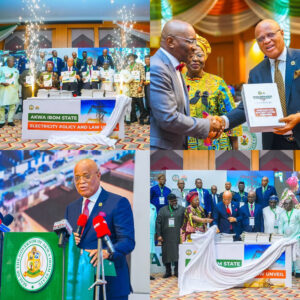
By Adesina Quadri Ademola
President Bola Ahmed Tinubu, through Special Adviser on Information and Strategy Bayo Onanuga, has announced that the president will sign four groundbreaking tax reform bills into law on June 26, 2025.
This confirmation was shared on his official X account (formerly Twitter), stating:
“President Bola Tinubu will, on Thursday, sign into law four groundbreaking tax reform bills that will transform Nigeria’s fiscal and revenue framework.”
The bills—namely, the Nigeria Tax Bill, Nigeria Tax Administration Bill, Nigeria Revenue Service (Establishment) Bill, and the Joint Revenue Board (Establishment) Bill—received approval from the National Assembly after extensive stakeholder consultations. Once enacted, they are poised to revolutionise tax administration, boost revenue, and foster a more conducive environment for business and investment.
High-Level Attendance at Signing Ceremony
The historic signing at the Presidential Villa, Abuja, will be attended by key government figures including the Senate President, Speaker of the House of Representatives, Senate and House Majority Leaders, and chairs of finance committees, alongside the Chairman of the Governors Forum, the Chairman of the Progressives Governors Forum, the Minister of Finance and Coordination, the Minister of the Economy, and the Attorney General of the Federation.
Highlights of the New Legislation
– Nigeria Tax Bill (Ease of Doing Business): Aims to unify Nigeria’s fragmented tax laws into a single, harmonised statute, reducing tax multiplicity and duplication, thereby simplifying compliance and fostering a predictable fiscal environment.
-Nigeria Tax Administration Bill: Establishes a uniform legal and operational framework for tax administration across all levels of government.
-Nigeria Revenue Service (Establishment) Bill: Replaces the current Federal Inland Revenue Service Act with a more autonomous, performance-driven Nigeria Revenue Service (NRS), expanding its mandate to include non-tax revenue collection and emphasising transparency, accountability, and efficiency.
-Joint Revenue Board (Establishment) Bill: Creates a governance structure to promote cooperation among revenue authorities, including oversight bodies like a Tax Appeal Tribunal and an Office of the Tax Ombudsman.
This series of reforms promises to significantly enhance Nigeria’s tax system, improve revenue collection, and create a more attractive environment for both domestic and foreign investors.







![[PHOTOS] Arewa Offa, Mustapha Amidat Concludes Skill Acquisition, Exhibition Programme](https://newsbulletin.com.ng/wp-content/uploads/2025/09/IMG-20250920-WA0011-300x300.jpg)